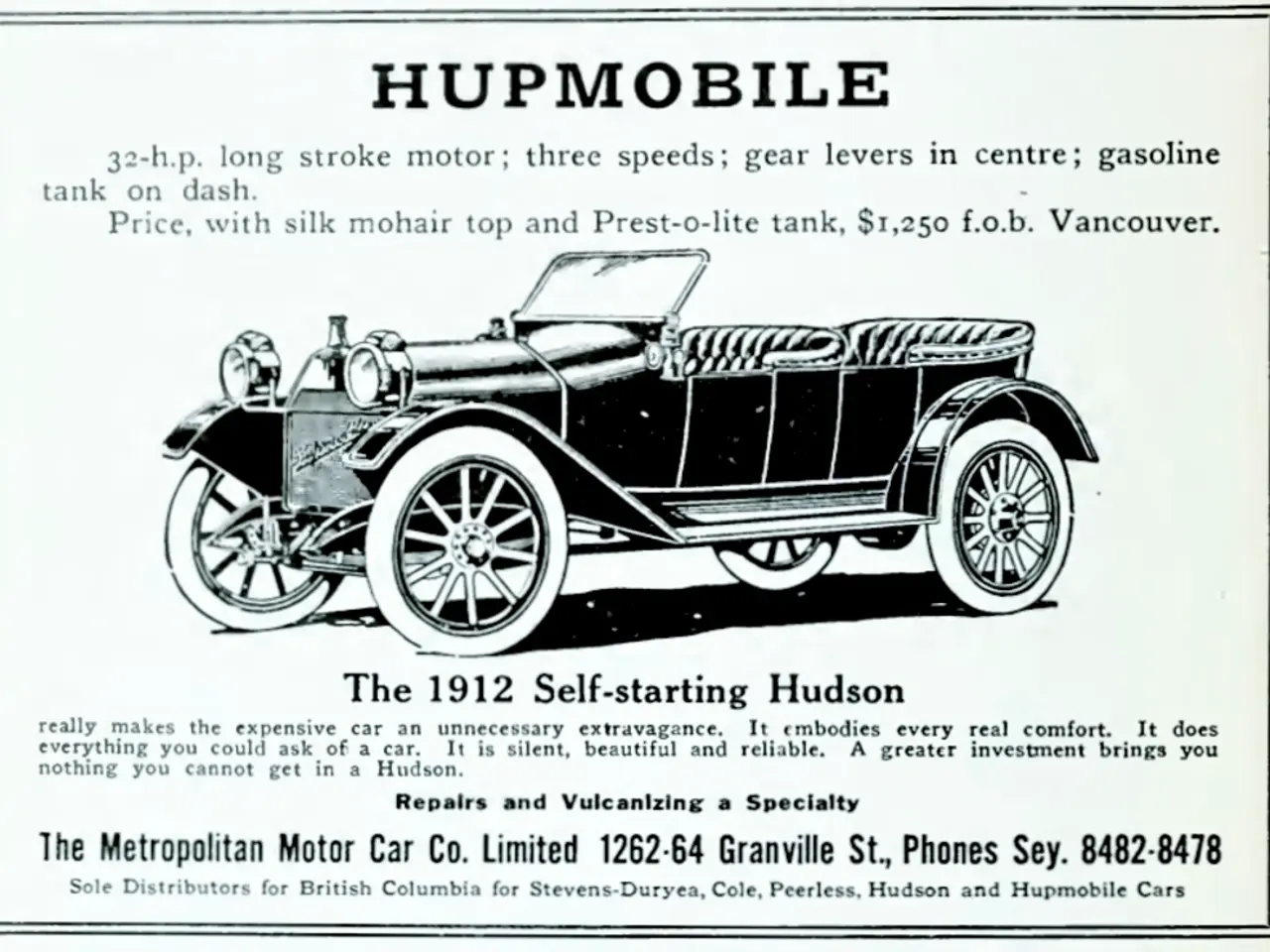Tesla maintains top position in California's electric vehicle market, despite a dip in Q1 sales figures
Tesla's Model Y Remains Top-Selling Car in California, Despite Q1 2025 Decline
In a surprising turn of events, Tesla's Model Y remained the best-selling car in California, electric or otherwise, with 23,314 registrations in Q1 2025. However, this success was overshadowed by a decline in Tesla's share of electric vehicle (EV) registrations in the state.
The decline was primarily due to a combination of internal product update cycles, competitive pressures, political backlash, and sales model limitations. Tesla's EV registrations in California decreased by about 18-21% year-over-year in the first half of 2025, marking the seventh consecutive quarterly decline in the state, the largest EV market in the U.S.
One of the contributing factors was Tesla’s aging vehicle lineup with limited new model introductions since the Cybertruck in 2023. The updated Model Y release failed to generate significant renewed interest. Additionally, Tesla's direct-to-consumer sales model without a robust physical dealership network has adversely affected sales support and market presence compared to competitors who have expanding dealership networks.
Growing competition in the EV market from traditional automakers and new entrants has eroded Tesla’s strong early foothold. Consumer hesitation influenced by CEO Elon Musk’s political controversies, specifically his public stances and actions that have created backlash in the predominantly liberal California market, has also been noted as a factor dampening demand.
Factory shutdowns related to vehicle updates, such as the Model Y refresh, disrupted supply chains and contributed to weak first-quarter sales. The reduced output during Q1 2025 likely led some customers to delay their purchases, contributing to a short-term dip in Tesla's registrations.
Despite the decline, Tesla's Model Y and Model 3 remain among the most registered vehicles in California, indicating that the slowdown is more about relative market share loss and competition rather than a collapse in absolute popularity. The Model 3 followed the Model Y with 13,992 registrations in Q1 2025.
The Cybertruck, another one of Tesla's vehicles, had 2,282 registrations in Q1 2025, placing it 8th among all EVs registered in the state. The Model X had 1,800 registrations in Q1 2025, placing it in 13th position.
Tesla's factories, including the one in Fremont, underwent planned downtime, which resulted in reduced output during Q1 2025. The new Model Y is now widely available, and production capacity is returning to normal levels, positioning Tesla for a stronger Q2 compared to its early-year slowdown.
Overall, EV sales in California increased 35% year-over-year in Q1 2025. The Ford F-150 Lightning had fewer registrations than the Cybertruck, with 2,003 registrations in Q1 2025. The Honda Prologue and Hyundai IONIQ 5 had 4,493 and 3,762 registrations respectively, making them the third and fourth best-selling EVs in California in Q1 2025. The Model S did not make it into the top 25 with 934 registrations during the first three months of the year.
The California New Car Dealers Association (CNCDA) released data on Q1 2025 EV registrations on Wednesday. The tariff war, which has added pressure to Tesla's global supply chain, also affected Tesla's registrations in Q1 2025. Despite these challenges, Tesla remains the top EV brand in California, with its market share being more than four times that of its nearest competitor.
In the face of a decline in Tesla's electric vehicle (EV) registrations, stemming from internal updates, competition, political backlash, and sales model limitations, the Model Y still reigned as the top-selling car in California, both electric and otherwise, with 23,314 registrations in Q1 2025. Amidst growing technology advancements in the EV market, the Model Y's success underscores its influence on California's lifestyle trends, as conversations about cars continue to shift towards electric-vehicles.




